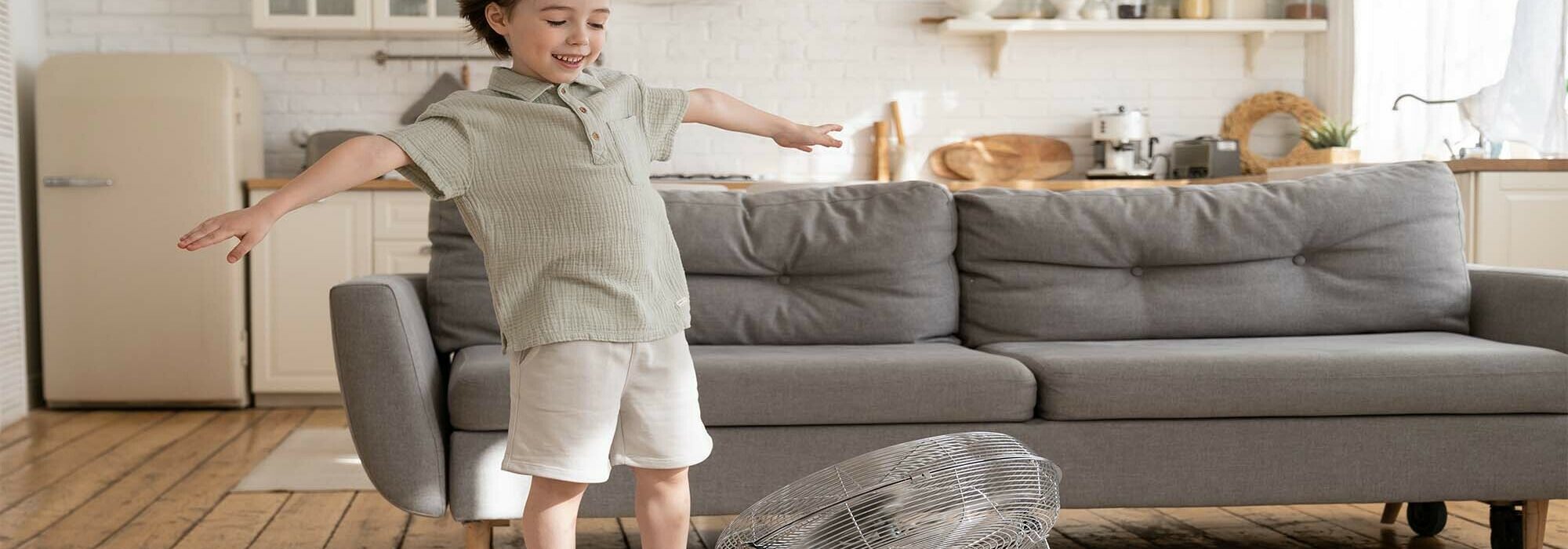Article Excerpt
Poor air circulation is a frustrating problem for Texas homeowners. Learn more about possible causes and potential solutions.
Few things are as frustrating for homeowners as poor airflow, especially in the hot summer months and cold winter months. HVAC systems are among the most precious parts of a home in Texas.
What can cause a lack of airflow to parts of your home? What can you do to fix it? Do you have to call a pricey HVAC repair company for every problem? Read on to learn more about how you can handle some of these issues yourself.
How does this happen?
Poor airflow could be the result of a mechanical problem with your HVAC unit, a problem with a vent or duct, or something else entirely. The following are a few possible culprits:
Blocked Vent or Duct
A reasonably simple explanation for poor airflow in a particular area of your house could be that you have a blockage in an air duct near that area. If the problem affects one room, the vent in that room could have some blockage.

Photo by Garin Chadwick on Unsplash
Leaky Duct
If air is leaking from your air ducts, you might find that not enough air makes it to the various vents around your home. Cool or warm air could be leaking into your attic or elsewhere instead.
Clogged Filter
Air filters can remove dust, pollen, mold, and other allergens from the air, but they need routine maintenance. If you haven’t replaced your air filter in a while, that could explain your airflow problems.
Oversized or Undersized HVAC Unit
HVAC systems are a bit like the Goldilocks bears: You need to find one that’s just right for your home’s size.
An undersized unit doesn’t have enough power to push air through your entire home. You might think that an oversized unit could cool or heat your home more effectively, but this is often not the case. If a unit is larger than what your home needs might end up short cycling, meaning that it turns on and off more frequently than it should. It never builds up enough airflow to reach the entire house.
![Photo by US Fish and Wildlife Service on Flickr [Creative Commons] AC units outside](/images/articles/_generalPhotoStandard/AC.jpg)
Photo by US Fish and Wildlife Service on Flickr [Creative Commons]
Inadequate Weatherstripping
Sometimes the problem isn’t that not enough air is getting to a room, but rather that too much air is getting out of that room. Weatherstripping around doors and windows prevents the transfer of inside and outside air. If you don’t have good weather stripping, you might be helping to heat or air-condition the neighborhood.
Other HVAC Problems
Finally, low or nonexistent airflow could be the result of a variety of mechanical problems affecting your HVAC unit, such as:
Accumulated debris in an outdoor unit
Low levels of refrigerant
Dirty coils
Malfunctioning blowers or fans
Most of these problems require the assistance of a professional HVAC repair specialist.
How bad can it get?
Poor air circulation can cause problems ranging from making a room very uncomfortable to damaging your HVAC system. A room that doesn’t get enough cool air in a Texas summer is not a fun place to be. Your HVAC system might not stop trying to cool it down, though, which puts stress on the system. You might face a stiff utility bill, or you might have to repair or replace the unit much sooner than if it were running smoothly.
What can I do about it?
Short of calling an HVAC repair company, you have a few options for DIY repairs.
Replace Air Filters
You should be replacing your air filters every three months at a minimum. Now is as good a time to start as ever.
Check for Blockages
You can check your air vents for obstructions, such as a buildup of dust or dirt. Contrary to what you might have seen in movies, you won’t be able to climb into your air ducts to look for blockages. You could, however, shine a flashlight in there to see if anything is visible.
Close Some Vents
You might be able to re-route air away from rarely-used rooms by closing those rooms’ vents. This keeps air from coming out of the vent, but not from traveling all the way through the duct. It’s still worth a try.
What are some alternatives to repairing or replacing my HVAC system?
DIY fixes aside, you may consider alternatives to central air in a particular room. Possible options include:
Ceiling fan
Box fan or oscillating fan
Window A/C unit
Space heater
Extra blankets or sweaters
![Photo by Thom Cochrane on Flickr [Creative Commons] Circulating Fan](/images/articles/_generalPhotoStandard/fan.jpg)
Photo by Thom Cochrane on Flickr [Creative Commons]
Learn More
Are you thinking of repairing a home that’s hot in the summer and cold in the winter? Are you considering buying a different house altogether? Either way, we’re here to help! Get started with the lender Texans trust.



